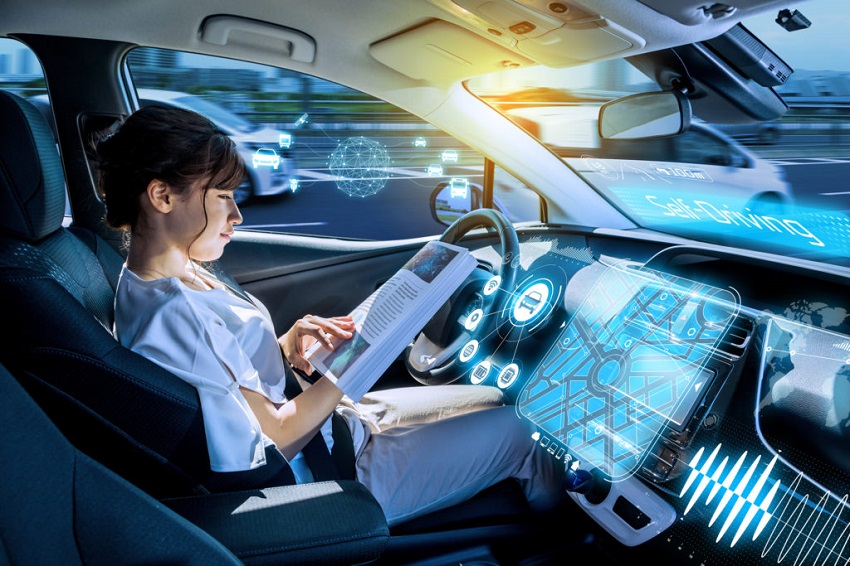In a world constantly driven by innovation and technological advancements, the realm of transportation has been no exception. The emergence of autonomous vehicles has set the stage for a revolution that promises to reshape how we commute, travel, and even envision the concept of mobility itself. The future of autonomous vehicles holds immense potential to transform not only our daily lives but also entire industries, from manufacturing to urban planning. As we navigate toward this exciting horizon, let’s delve into the future of autonomous vehicles and explore how they are poised to redefine transportation as we know it.
The Rise of Autonomy: From Science Fiction to Reality
Autonomous vehicles, once relegated to the realm of science fiction and futuristic movies, are now becoming a tangible reality. Thanks to advancements in artificial intelligence, sensor technology, and computing power, self-driving cars are no longer just a distant dream. In fact, major tech companies and automotive giants have invested billions in research and development to bring these vehicles from concept to actual roadways. Companies like Tesla, Waymo, and Uber have taken the lead, showcasing prototypes that can navigate roads and traffic without human intervention. Explore also how does 5g technology enhance the internet of things.
The Promise of Safety and Efficiency
One of the driving forces behind the push for autonomous vehicles is the potential to significantly enhance road safety. Human error is a leading factor in accidents, and autonomous vehicles aim to minimize these risks through their precise sensors and real-time decision-making capabilities. By constantly analyzing the surroundings and responding instantaneously, these vehicles have the potential to reduce accidents caused by distracted driving, speeding, and other common human errors.
Additionally, the efficiency of autonomous vehicles cannot be understated. These vehicles can communicate with each other and with infrastructure elements, leading to optimized traffic flow and reduced congestion. Imagine a future where traffic jams are minimized, travel times are predictably shorter, and fuel consumption is optimized. Autonomous vehicles have the capacity to reshape urban planning and infrastructure to create smarter, more sustainable cities.
Navigating Regulatory Challenges
While the potential benefits of autonomous vehicles are vast, navigating the regulatory landscape presents a significant challenge. Policymakers and legislators are faced with the task of creating a framework that ensures the safety and reliability of self-driving cars while addressing liability and ethical concerns. Questions such as who is responsible in case of an accident involving an autonomous vehicle and how data privacy is maintained remain crucial considerations.
In response, industry stakeholders are working closely with governments to develop regulations that strike a balance between innovation and public safety. These collaborations are essential to fostering an environment where autonomous vehicles can thrive while maintaining the highest standards of security and accountability.
Transforming Industries Beyond Transportation
The impact of autonomous vehicles extends far beyond the realm of transportation. Industries that rely on the movement of goods, such as logistics and delivery, are poised for transformation. Self-driving trucks and delivery vehicles can operate around the clock, optimizing supply chains and reducing delivery times. This increased efficiency has the potential to reshape the e-commerce landscape and redefine how products are distributed.
Moreover, the automobile industry itself is undergoing a paradigm shift. The concept of car ownership is evolving as autonomous vehicles give rise to transportation-as-a-service models. Instead of owning cars, individuals may opt for on-demand mobility services, further reducing congestion and the need for excessive parking infrastructure.
You may like to read: Four Websites To Buy Auto Parts Online
Overcoming Technological Challenges
Despite the progress made, there are still technological challenges that must be addressed before autonomous vehicles become ubiquitous. These challenges range from perfecting sensor technology to ensuring reliable communication between vehicles and infrastructure. Additionally, developing algorithms that can accurately predict and respond to complex and unpredictable real-world scenarios remains a work in progress.
Research and development efforts are ongoing to refine these technologies and overcome hurdles. Machine learning and AI are at the forefront of these efforts, allowing vehicles to continuously learn from their experiences and adapt to new situations. As these technologies evolve, the gap between human and machine decision-making capabilities will continue to narrow.
Shaping the Future of Urban Planning
The integration of autonomous vehicles into urban environments has the potential to redefine the way cities are planned and designed. With reduced need for parking spaces and decreased traffic congestion, urban planners can repurpose land for green spaces, affordable housing, and pedestrian-friendly zones. As cars become more autonomous, streets can prioritize safety for pedestrians and cyclists, fostering vibrant communities and enhancing quality of life.
Furthermore, autonomous vehicles can play a crucial role in addressing environmental challenges. Electric and autonomous vehicles can work in tandem to reduce greenhouse gas emissions and combat air pollution. This synergy aligns with global efforts to transition toward more sustainable transportation solutions and combat the effects of climate change.
Conclusion
The future of autonomous vehicles holds transformative potential that extends well beyond the confines of the automotive industry. As technology continues to evolve and stakeholders collaborate to address challenges, self-driving cars are poised to revolutionize how we perceive transportation and mobility. From enhanced safety and efficiency to reshaping urban landscapes, the impact of autonomous vehicles will reverberate across industries and societies. As we look ahead, it’s clear that the road to autonomy is paved with innovation, possibilities, and a future that promises to be nothing short of extraordinary.

